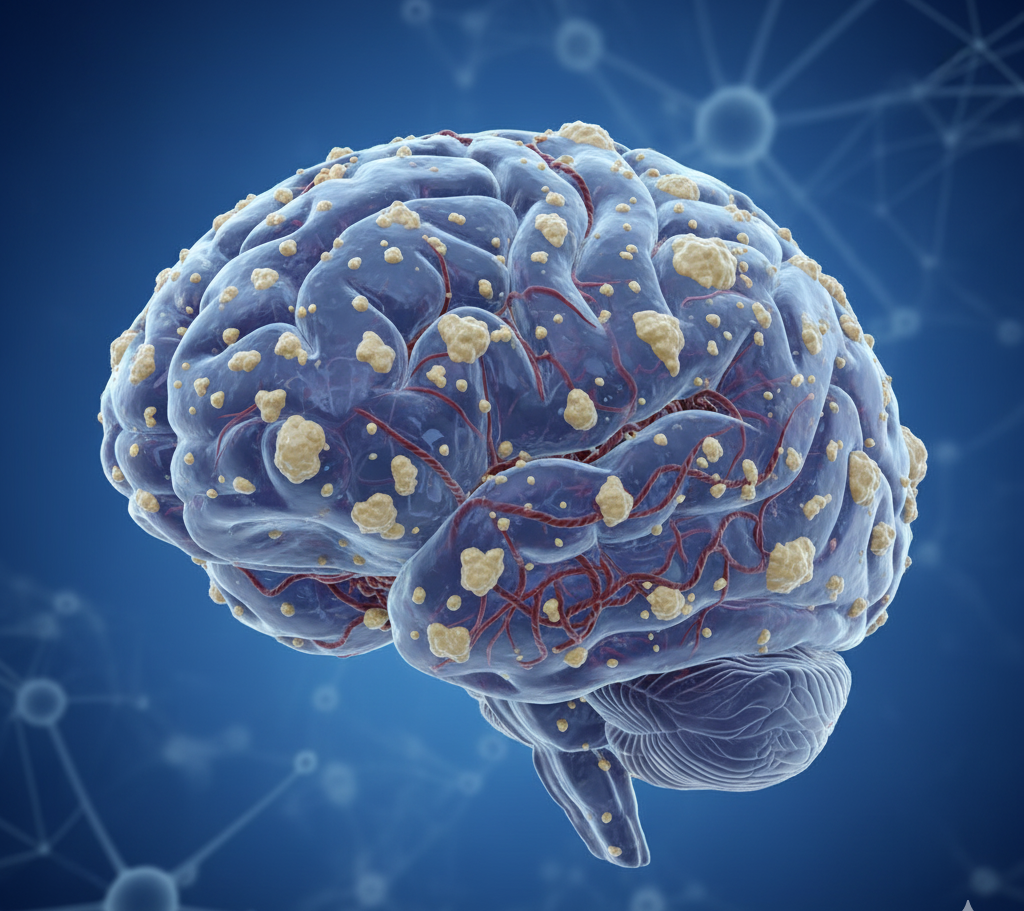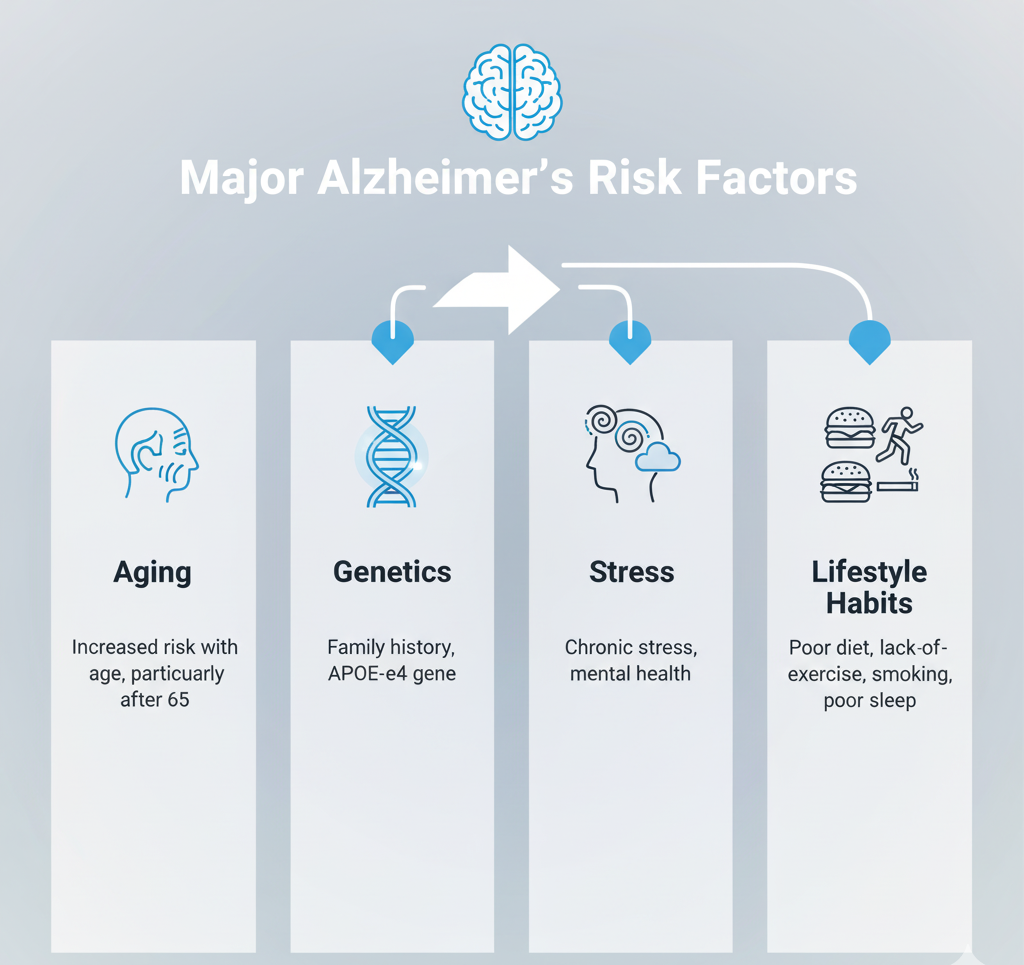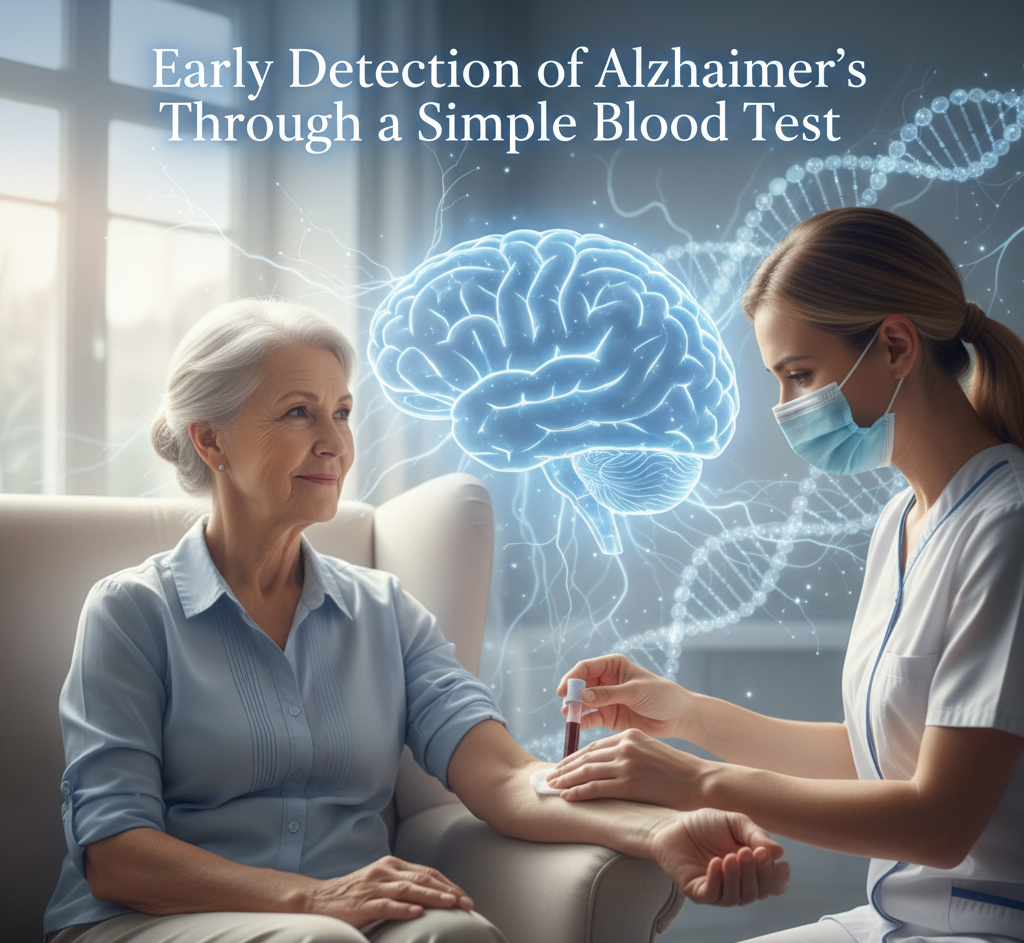Introduction: A New Era in Alzheimer’s Detection
Alzheimer’s disease, a progressive brain disorder that affects memory, thinking, and behavior, impacts millions worldwide. In the U.S. alone, over 7 million people are living with the condition—and the numbers are rising. Traditionally, diagnosing Alzheimer’s required expensive brain scans or invasive spinal fluid tests.
But now, a simple blood test could change everything. This breakthrough in medical research offers early detection possibilities—potentially years before symptoms become severe. For families and healthcare providers, this innovation represents a major step toward better management, treatment, and quality of life.
In India, where dementia cases are also on the rise, such accessible testing could revolutionize elderly care and preventive brain health screening.

Understanding Alzheimer’s Disease
Alzheimer’s disease is a neurodegenerative disorder that causes progressive loss of brain cells. It primarily affects older adults, though early-onset cases can occur before age 65. Over time, it leads to memory loss, confusion, difficulty with daily tasks, and personality changes.
In Alzheimer’s, abnormal protein buildups—beta-amyloid plaques and tau tangles—damage nerve cells, disrupting communication between brain regions.
Globally, more than 55 million people live with dementia, and Alzheimer’s accounts for nearly 70% of these cases. In India, over 8 million people could develop dementia by 2030, making early detection and awareness crucial.
The Breakthrough Blood Test
Recent medical research has developed a blood-based biomarker test that detects specific proteins—such as phosphorylated tau (p-tau)—linked to Alzheimer’s. These proteins appear in the blood years before symptoms, allowing for earlier diagnosis.
How it works:
-
A small blood sample is taken.
-
Advanced lab tests identify Alzheimer’s-related biomarkers.
-
If elevated levels are found, doctors can confirm risk through imaging or cognitive testing.
This method is less invasive, more affordable, and easier to perform than traditional scans or spinal fluid analysis.
Why early detection matters:
-
Enables timely treatment to slow progression.
-
Encourages lifestyle changes that protect brain health.
-
Helps families plan long-term care.
-
Reduces emotional and financial stress.

Causes and Risk Factors
The main causes include buildup of amyloid and tau proteins, loss of brain cell communication, and genetic factors like the APOE ε4 variant.
Risk factors:
-
Advancing age (especially after 65)
-
Family history of dementia
-
Sedentary lifestyle or poor diet
-
Smoking, diabetes, hypertension, obesity
Symptoms of Alzheimer’s Disease
Early signs:
-
Mild memory loss
-
Forgetting names or recent events
-
Misplacing items frequently
-
Trouble planning or problem-solving
Moderate stage:
-
Confusion with time or place
-
Anxiety, depression, or mood swings
-
Trouble speaking or writing
-
Difficulty performing daily tasks
Advanced stage:
-
Loss of recognition of family members
-
Inability to communicate
-
Difficulty swallowing or walking
-
Dependence on full-time care
ALSO READ: Why Do People Love Spicy Food – Even When It Hurts To Eat It?
Diagnosis and Testing
Traditional methods include neurological exams, brain imaging (MRI or PET scans), cerebrospinal fluid analysis, and cognitive assessments.
The new blood test offers faster, more affordable screening that can be widely available—even in semi-urban or rural India. It could make early Alzheimer’s detection practical and accessible.
Treatment and Management
There’s no cure for Alzheimer’s, but treatments help manage symptoms and slow disease progression. Common options include:
-
Cholinesterase inhibitors like Donepezil and Rivastigmine
-
Memantine, which protects brain cell communication
-
Cognitive exercises and therapy for memory support
-
Nutritional and lifestyle interventions
Ongoing medical research is exploring immunotherapy to remove amyloid plaques, gene therapy to alter protein production, and next-generation neuroprotective drugs.
Lifestyle and Prevention
Simple lifestyle habits can protect brain health and lower Alzheimer’s risk:
-
Eat foods rich in omega-3s and antioxidants.
-
Exercise regularly.
-
Stay mentally active with reading and puzzles.
-
Maintain social interactions.
-
Sleep well and manage stress effectively.

When to See a Doctor
Consult a neurologist or general physician if you or a loved one experience:
-
Persistent memory problems
-
Difficulty focusing or communicating
-
Disorientation or personality changes
Quickobook makes it easy to book an appointment with a trusted doctor near you for early assessment and support.
Risks and Complications
-
Loss of independence
-
Poor nutrition and dehydration
-
Falls or injuries due to confusion
-
Emotional stress for caregivers
-
Higher infection risk
Conclusion
Alzheimer’s disease remains one of the world’s most challenging brain disorders, but new research gives hope. A simple blood test could soon help detect Alzheimer’s years earlier—enabling better treatment, planning, and peace of mind.
For Indian families, early screening and awareness are key. If you notice early symptoms, don’t delay—book a consultation on Quickobook for expert evaluation and care.
Quickobook CTA
Book a neurologist or general physician on Quickobook for Alzheimer’s screening or elderly care.
Visit Quickobook.com for verified doctors, transparent fees, and easy online appointments.
50 FAQs: Alzheimer’s Disease and Blood Test
Q1. What is Alzheimer’s disease?
A progressive brain disorder that causes memory loss and cognitive decline.
Q2. Can a blood test really detect Alzheimer’s early?
Yes, new tests identify proteins linked to Alzheimer’s years before symptoms.
Q3. How accurate is the blood test?
Studies show around 85–90% accuracy, though scans may confirm diagnosis.
Q4. Who should get the test?
Those with memory issues or a family history of dementia.
Q5. Is the test available in India?
It’s in advanced trials, soon to be introduced in major Indian cities.
Q6. What are the symptoms of Alzheimer’s?
Memory loss, confusion, speech issues, and personality changes.
Q7. Is Alzheimer’s the same as dementia?
Alzheimer’s is a common cause of dementia but not the only one.
Q8. What causes Alzheimer’s?
Abnormal protein buildup and nerve cell damage.
Q9. Can lifestyle changes help prevent it?
Yes—exercise, brain activity, and diet can reduce risk.
Q10. What is the usual age of onset?
Usually after 65, though early-onset cases occur earlier.
Q11. Is it hereditary?
Some genes increase risk, but lifestyle still plays a major role.
Q12. Can stress cause it?
Chronic stress can increase brain inflammation and risk.
Q13. What foods help brain health?
Fish, berries, green vegetables, and nuts.
Q14. Can Alzheimer’s be cured?
No cure yet, but symptoms can be managed effectively.
Q15. What is mild cognitive impairment?
Mild memory issues without major daily disruption.
Q16. How is it diagnosed?
Memory tests, imaging, and now, emerging blood tests.
Q17. Does diabetes increase risk?
Yes, uncontrolled blood sugar harms brain cells.
Q18. Who gets it more—men or women?
Women have a higher lifetime risk.
Q19. How does sleep affect risk?
Poor sleep increases harmful protein buildup.
Q20. Can head injuries lead to Alzheimer’s?
Yes, repeated trauma increases likelihood.
Q21. How long can one live with it?
Usually 8–12 years post-diagnosis.
Q22. Is it contagious?
No, Alzheimer’s is not infectious.
Q23. Can a healthy diet slow progression?
Yes, balanced diets help brain function.
Q24. Does depression play a role?
Long-term depression may raise dementia risk.
Q25. Can yoga help patients?
Yes, yoga reduces anxiety and improves focus.
Q26. What are amyloid plaques?
Clumps of protein that damage brain connections.
Q27. What is tau protein?
A structural protein that forms tangles in Alzheimer’s brains.
Q28. Can exercise improve memory?
Yes, it boosts blood flow and neuron health.
Q29. Is there a vaccine?
Not yet, but research continues.
Q30. Which doctor should I consult?
A neurologist or general physician.
Q31. What is the cost of care in India?
Typically ₹2,000–₹10,000 per month.
Q32. What are the disease stages?
Early, moderate, and late.
Q33. Can meditation help?
It can ease agitation and enhance calmness.
Q34. Do supplements work?
Some may help, but consult a doctor first.
Q35. How can caregivers manage stress?
Join support groups and take rest breaks.
Q36. Can patients live alone?
Not safely in advanced stages.
Q37. What’s the difference from Parkinson’s?
Alzheimer’s affects memory; Parkinson’s affects movement.
Q38. Can early treatment delay worsening?
Yes, early medical care helps.
Q39. What tests confirm Alzheimer’s?
Blood biomarkers, MRI, PET scans.
Q40. Does alcohol affect risk?
Yes, excessive drinking damages brain cells.
Q41. How do genes affect it?
Certain genes raise susceptibility.
Q42. Are brain exercises helpful?
Yes—reading, games, and learning new skills boost memory.
Q43. Does blood pressure affect Alzheimer’s?
High BP increases dementia risk.
Q44. Does it start suddenly?
No, symptoms progress gradually.
Q45. Can vitamin B12 deficiency mimic Alzheimer’s?
Yes, it can cause reversible memory loss.
Q46. Difference between memory loss and dementia?
Memory loss is one symptom; dementia is a condition.
Q47. Can Alzheimer’s be reversed?
No, but its progress can be slowed.
Q48. How important is family support?
Crucial for emotional and practical care.
Q49. Where can I get tested in India?
Book neurologists via Quickobook.com.
Q50. How to spread awareness?
Share knowledge, volunteer, and promote brain health.









Comments (0)
No comments yet. Be the first to share your thoughts!
Leave a Comment